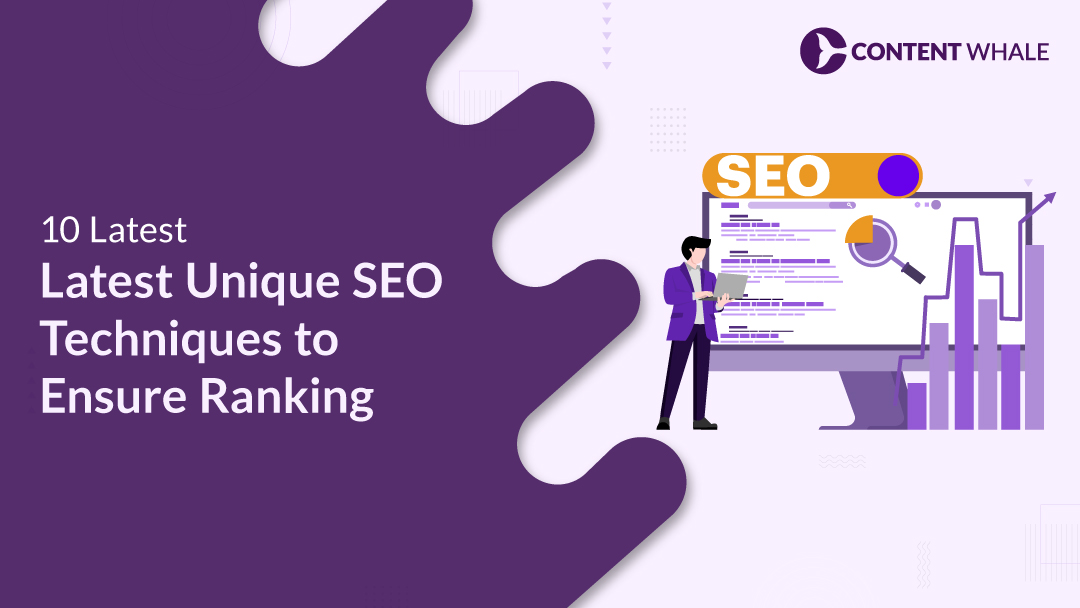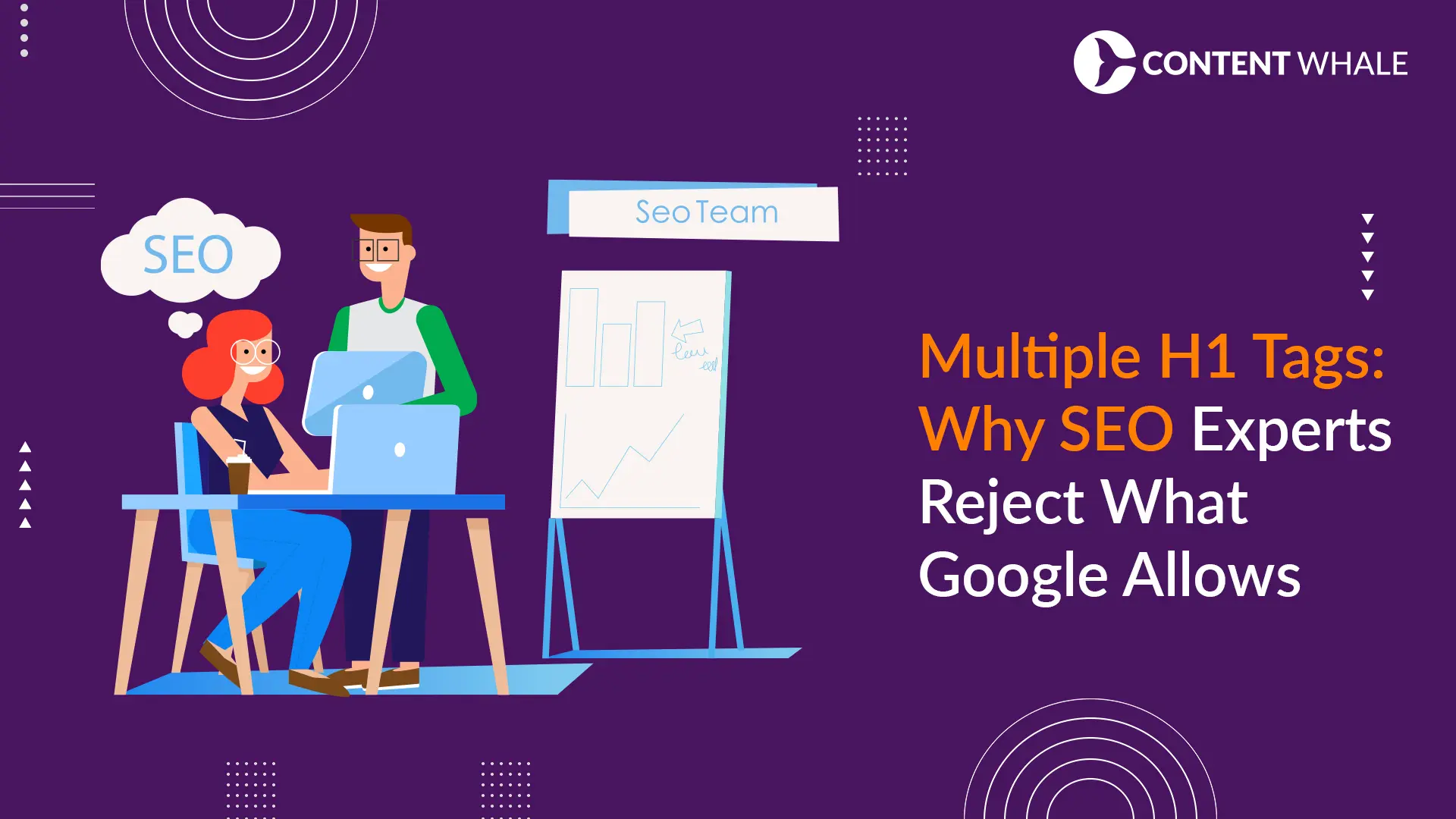Search engines are constantly updating their algorithms, which means businesses need to stay on top of the latest SEO techniques to remain competitive. Ranking high on search engine results pages (SERPs) requires more than traditional keyword stuffing and backlinks. Today’s strategies focus on delivering real value to users while aligning with modern SEO best practices.
This guide explores 10 unique SEO strategies that will improve your SEO ranking in 2024. From AI-powered insights to enhancing user experience, these techniques are designed to ensure your site remains visible and relevant in a constantly shifting digital environment. Ready to discover what’s driving SEO optimisation now? Let’s dive in!
1. AI-Powered SEO Insights
The integration of artificial intelligence (AI) into SEO strategies is transforming the way businesses optimize for SEO ranking. AI-powered tools like Jasper and Surfer SEO are revolutionizing content creation and on-page SEO optimization by automating keyword research, content recommendations, and performance analysis. These tools analyze vast amounts of data to identify trends, predict SERP performance, and enhance user experience.
Some of the latest SEO techniques powered by AI include:
- Keyword Research: AI tools can analyze user behavior and competition to identify high-value keywords, saving significant time. Tools like Semrush and Ahrefs provide in-depth keyword analysis, making it easier to refine SEO strategies.
- Content Optimisation: AI algorithms such as those used in NeuronWriter and Outranking suggest real-time content improvements based on SEO best practices, including meta descriptions, schema markup, and internal linking strategies. These adjustments can directly improve a site’s SEO ranking.
- Predictive Analytics: AI tools like Claude offer insights into future search trends, enabling proactive adjustments to content and SEO tactics.
| # | AI Tool | Key Features | Use Cases |
| 1 | Ahrefs | Comprehensive keyword data, content gap analysis, rank tracking | Keyword research, competitor analysis, SEO insights |
| 2 | Surfer SEO | AI-powered content suggestions, content grading, NLP optimization | On-page SEO, content optimization |
| 3 | Frase | AI-driven content briefs, topic research, competitive analysis | Content planning, optimization, and SERP analysis |
| 4 | MarketMuse | Content clustering, SERP analysis, topic authority assessment | Content strategy, topic modeling, content briefs |
| 5 | Glimpse | Identifies emerging trends and keywords across industries | Predictive analytics, trend spotting, keyword research |
2. Experience-Driven Content
Google’s emphasis on experience-driven content through its E-E-A-T framework (Experience, Expertise, Authoritativeness, Trustworthiness) has become a crucial ranking factor in 2024. Content that demonstrates real-world experience adds a layer of credibility that purely informative or promotional content often lacks. This shift means businesses must focus on producing content that reflects genuine user interactions, case studies, or expert insights.
Here’s how to enhance SEO ranking with experience-focused content:
- Leverage First-hand Experience: Integrate real-life case studies, customer testimonials, and detailed product reviews to show expertise. For example, documenting how a product or service solved a customer’s issue can add authority to your site.
- Use Multimedia: Video content, tutorials, and interviews with industry experts boost credibility. Rich media not only keeps users engaged but also supports SEO optimisation by increasing time spent on the site.
- Prioritize User-Generated Content: Encourage users to share their experiences through comments, reviews, and forums. This creates authentic content and adds social proof, which search engines favor.
3. Voice Search Optimization
Voice search is quickly becoming a significant player in the world of SEO. With over 50% of all searches expected to be voice-driven by 2024, optimizing for voice search is no longer optional. To stay competitive, businesses need to adapt their SEO strategies to accommodate voice search queries.
Here are some unique SEO strategies for voice search optimization:
- Focus on Conversational Keywords: Voice search queries are longer and more conversational. Users tend to ask questions like, “Where is the nearest coffee shop?” rather than typing simple phrases. Incorporate these natural, long-tail keywords into your content to align with how people speak.
- Target Question-Based Keywords: People typically use voice search to ask questions. Incorporating FAQs or direct answers in your content helps capture these searches. Structuring your content around common questions, like “how,” “what,” and “where,” increases your chances of appearing in featured snippets, which are highly visible in voice search results.
- Local SEO Optimization: Many voice searches are location-based. Optimizing your site for local SEO by ensuring your business information (name, address, phone number) is up-to-date on platforms like Google My Business is essential for improving your SEO ranking in local searches.
4. Semantic SEO and Entity Recognition
Semantic SEO has become a pivotal strategy in 2024, focusing on understanding the meaning behind queries rather than just matching keywords. With advancements in natural language processing (NLP), search engines now analyze not only the words but also the intent and context behind them. This shift is known as entity-based SEO, where search engines identify entities (people, places, things) and their relationships to deliver more relevant results.
Here’s how to optimize for semantic search:
- Entity-Based Content: Create content that revolves around recognized entities, such as specific topics, brands, or products. For example, integrating structured data (schema markup) helps search engines better understand your content, improving your chances of appearing in featured snippets and rich results.
- Contextual Relevance: Search engines prioritize content that fully addresses user intent. Ensure your content is comprehensive and connected to related topics. Using semantic keywords—related terms and synonyms—helps search engines grasp the broader context of your content, making it more valuable for SEO optimization.
- Internal and External Linking: Establish a strong internal linking structure to enhance the relationships between your content and relevant entities. External links from reputable sources further validate your content’s authority.
5. Featured Snippets and Zero-Click Searches
Zero-click searches have become a dominant force in SEO, as users increasingly get their answers directly from search results without clicking on any links. These searches often appear in featured snippets, making them a top priority in the latest SEO techniques. A well-optimized snippet boosts visibility and credibility while still encouraging further interaction with your site.
To optimize for featured snippets and zero-click searches, focus on:
- Concise Answers: Ensure your content directly answers common user queries. Use clear headings, bullet points, and numbered lists to make information easily extractable by search engines.
- Schema Markup: Implement structured data like schema markup to help search engines better understand your content. This increases your chances of being featured in rich snippets, knowledge panels, or local packs.
- Contextual Relevance: Ensure your content is deeply relevant to the query. Semantic SEO helps here, as search engines now prioritize content that comprehensively answers user intent rather than just matching keywords.
| # | Benefit | Description |
| 1 | Increased Visibility | Appearing at the top of SERPs boosts your site’s visibility. |
| 2 | Higher Click-Through Rates (CTR) | Featured snippets attract more clicks due to their prominent placement. |
| 3 | Boost in SEO Ranking | Improves your site’s authority and ranking by showcasing valuable content. |
| 4 | Voice Search Optimization | Frequently used for voice search results, enhancing reach in voice-driven searches. |
| 5 | Authority and Brand Credibility | Establishes your brand as a trusted source by answering common queries directly. |
6. Core Web Vitals for Speed and User Experience
Core Web Vitals have emerged as a key factor in SEO success, focusing on improving user experience through page performance metrics. These metrics—Largest Contentful Paint (LCP), First Input Delay (FID), and Cumulative Layout Shift (CLS)—are now deeply integrated into Google’s ranking algorithm. They directly impact your site’s SEO ranking by assessing how well it performs in terms of speed, responsiveness, and visual stability.
To optimize for these latest SEO techniques:
- Improve LCP: This measures how quickly the largest visible element (e.g., an image or text block) loads. Use lazy loading for images, compress files, and minimize render-blocking resources to speed up loading times.
- Enhance FID: Reduce the delay in page interaction by optimizing JavaScript. Use browser caching and minimize third-party scripts to improve interactivity and reduce the time it takes for the browser to respond to user actions.
- Optimize CLS: Ensure visual stability by setting size attributes for all media (images, videos), reserving space for ads, and avoiding dynamic content that shifts layout unexpectedly.
7. Interactive Content
Interactive content has proven to be one of the latest SEO techniques that can boost engagement, dwell time, and conversions. Unlike static formats, interactive content encourages users to actively engage, which improves metrics like bounce rate and time spent on the page, both of which positively impact SEO ranking.
Here are some unique SEO strategies for using interactive content:
- Quizzes and Polls: These are highly engaging and can capture leads or provide personalized insights, keeping users on the page longer.
- Calculators and Tools: Offering tools such as ROI or savings calculators helps users make informed decisions, which not only increases engagement but also boosts SEO optimization by providing value.
- Interactive Infographics: By transforming static infographics into clickable, dynamic content, you can drive longer user interactions and make key information more memorable.
8. Video Content Optimization
Optimizing video content has become one of the latest SEO techniques for enhancing visibility and driving engagement in 2024. Videos play a critical role in improving SEO ranking, as search engines increasingly prioritize multimedia content.
To optimize video content:
- Optimize Titles and Descriptions: Use keyword-rich titles and detailed descriptions that align with search intent. This boosts discoverability on platforms like YouTube and Google.
- Use Transcripts and Captions: Adding transcripts and captions provides extra text for search engines to crawl, improving SEO optimization while making content accessible to a wider audience.
- Create Eye-Catching Thumbnails: Thumbnails should grab attention, as they significantly influence click-through rates. Design compelling visuals with clear messaging to attract viewers.
- Leverage Schema Markup: Adding schema markup to embedded videos helps search engines better understand and index your video content, improving its ranking potential.
| # | Tool Name | Key Features | Pricing |
| 1 | Vidyard | – AI-powered analytics- Unlimited videos- Viewer insights and customizable CTAs | Free; Pro: $19/month; Plus: $59/month; Business: $1,250/month |
| 2 | Loom | – One-click screen recording- Auto titles and summaries- Interactive video tools | Free; Business: $12.50/month |
| 3 | Wistia | – Customizable video players- Lead generation tools- Advanced viewer analytics | Free; Pro: $99/month |
| 4 | Camtasia | – Professional video editing- Simplified screen recording- Advanced effects and transitions | Starts at $179.88/year |
| 5 | Filmora | – Motion tracking and green screen effects- Advanced audio and visual effects- Stock media | Starts at $49/year |
9. Local SEO and Google Business Optimization
Optimizing for local search is essential for businesses looking to attract nearby customers in 2024. One of the latest SEO techniques includes refining your Google Business Profile (GBP). Ensuring that your profile is complete, with accurate business hours, updated contact information, and customer reviews, significantly impacts your SEO ranking in local searches.
Key strategies for local SEO optimization:
- Focus on Reviews: Positive customer reviews not only improve your credibility but also enhance your visibility in local search results. Encourage satisfied customers to leave reviews and respond promptly to all feedback.
- Optimize for Voice Search: With voice searches surpassing 50% of all online searches, crafting content that aligns with conversational queries is crucial for local businesses.
- Mobile Optimization: Most local searches are conducted on mobile devices. Ensure your website loads quickly and is mobile-friendly to capture and retain local traffic.
10. Leveraging E-E-A-T Principles
In 2024, E-E-A-T (Experience, Expertise, Authoritativeness, Trustworthiness) remains a pivotal factor in achieving higher SEO ranking. Google prioritizes content that demonstrates these qualities, ensuring users receive reliable and credible information. To enhance SEO optimization, businesses should focus on developing content that clearly reflects their expertise and real-world experience.
Here are some effective SEO strategies for building E-E-A-T:
- Showcase Author Credentials: Clearly highlight the expertise of content creators through detailed bios, certifications, and industry experience. This helps build trust with both users and search engines.
- Acquire High-Quality Backlinks: Backlinks from authoritative websites signal trustworthiness and improve search visibility.
- Maintain a Positive Online Reputation: Encourage reviews and engage with customers, as positive feedback contributes to overall authority.
Conclusion
As SEO evolves in 2024, staying updated with the latest SEO techniques is critical for maintaining and improving SEO rankings. This year’s success relies on AI-driven insights, user-centric content, and a seamless user experience. Emerging trends like Google’s Search Generative Experience (SGE), zero-click searches, and E-E-A-T (Experience, Expertise, Authoritativeness, Trustworthiness) are key to helping businesses differentiate themselves.
At Content Whale, we stay ahead by embracing these advancements to deliver content that is not only optimized but impactful. Through the use of AI-powered tools, experience-based strategies, and semantic SEO, we ensure your content performs well in rankings and resonates with your audience. Our team constantly evolves, adapting to changes like Core Web Vitals, voice search optimization, and the E-E-A-T framework, ensuring your brand remains competitive in the ever-changing SEO landscape.
FAQs
1. What are the top AI tools for SEO optimization?
AI-powered tools like Surfer SEO, Jasper, and Frase have revolutionized content optimization. These tools automate keyword research, provide real-time recommendations, and analyze competitors, making it easier to improve your SEO ranking and streamline tasks like content creation and analysis.
2. How does experience-driven content improve SEO rankings?
Experience-driven content aligns with Google’s E-E-A-T principles, which prioritize expertise, authoritativeness, and trustworthiness. Creating content that reflects real-world user experiences—such as case studies or customer reviews—demonstrates authority, which directly influences SEO optimization.
3. What are the key elements of Core Web Vitals for SEO?
The Core Web Vitals include three crucial metrics: Largest Contentful Paint (LCP), which measures loading performance; First Input Delay (FID), which assesses interactivity; and Cumulative Layout Shift (CLS), which focuses on visual stability. Improving these metrics boosts user experience and helps with SEO ranking.
4. How can I optimize my content for featured snippets?
To rank for featured snippets, provide concise, clear answers to common questions in your niche. Use structured formats like bullet points, lists, and tables, and ensure your content directly answers search queries. This increases the chances of being featured in zero-click searches.
5. Why is semantic SEO important in 2024?
Semantic SEO focuses on the meaning behind queries rather than just matching keywords. Search engines now prioritize content that fully addresses user intent, improving relevance and enhancing SEO optimization by providing contextually rich information.





